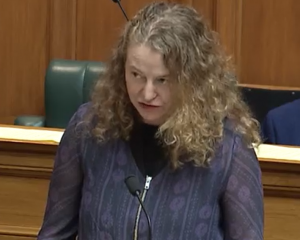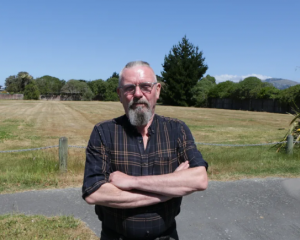A veteran English coalminer was so appalled at the inexperienced, over-confident young Pike River miners that he left - telling his wife "that mine is going to go''.
McConnell Dowell leading hand Albert Houlden learned about mining in the northern English coalfields at a pit with 2500 men.
Today he told the Royal Commission of Inquiry into the Pike River disaster he had "survived'' 37 years in the industry by never trusting anything. He came to New Zealand in 2007 with Solid Energy, and transferred to Pike River in 2009.
Seven months before the November 2010 disaster he told his wife "that mine is going to go'', and took a new job in Papua New Guinea.
When he returned his job was still open but his wife did not want him to take it so he went back to Solid Energy.
He said the young men at Pike River Mine, many of them "good lads'', had "too much self-confidence, too quick'' in a very hostile environment.
In Britain, underground training lasted far longer and was one-on-one. They were "born and bred'' into mining, creating a real camaraderie, whereas some of those at Pike River had previously worked in the bush.
"They've been underground maybe six months and they are a miner. I wish I could take them in a time machine and take them into what I was used to, where if you didn't do as you were told you got a stick across the hand ...''
The men were used to earning a lot of money for doing very little, he said.
When Pike River Coal offered its miners a $10,000 bonus to try to meet a production target after the mine development got behind, Mr Houlden said they started going at "100 miles an hour'', without any further training.
That was when "it all fell down,'' he said.
Some of the Pike River miners called him a "queer old so-and-so'', but "I'm not going to die here just because you don't understand where you are working''.
He was also seriously concerned by the underground ventilation system.
When methane gas levels went off the scale one day, he found that Valley Longwall contractors had opened a bore hole to release pressure, which was pumping methane straight at him.
"How were they getting away with that?''
He asked if it was normal for people just to do what they thought was right, and not tell anyone. The mine deputy was "only a young man'', communication was poor, and people worked as independent units.
Another time, ventilation was shut off with no warning and a third time he could not breathe and found the fan was off.
"It was as if it was carte blanche and they could do what they wanted,'' Mr Houlden said.
He often left the mine with a splitting headache and feeling nauseous from the carbon monoxide from the machines, due to ventilation problems underground.
He said the "hardest thing'' he had found was people's lack of concern for their own safety, and everyone else's.
Things improved when Doug White took over as mine manager. Management tried to enforce a proper safety culture but the inexperienced "lads'' did not grasp the importance of it.
Contractors with little or no experience underground were in the mine with very little induction training and supervision.
Mr Houlden spoke of the gradual training in the English mining industry, where men spent time learning to respect the dangerous underground environment.
In his days, training started on the surface. The men spent time attached to a senior miner, just getting used to the environment.
They ran the conveyor and when the older miner in charge said they were worthy, they would progress on. They would have to sit in total darkness in order to appreciate why their lamp and self-rescuers were so important.
Until Pike River he had never worked in a mine with the ventilation fan underground, and only one escapeway.
He told the supervisors of his concerns, but not management. In his position, he said he did not feel it was his place to address those things.
- Greymouth Star












